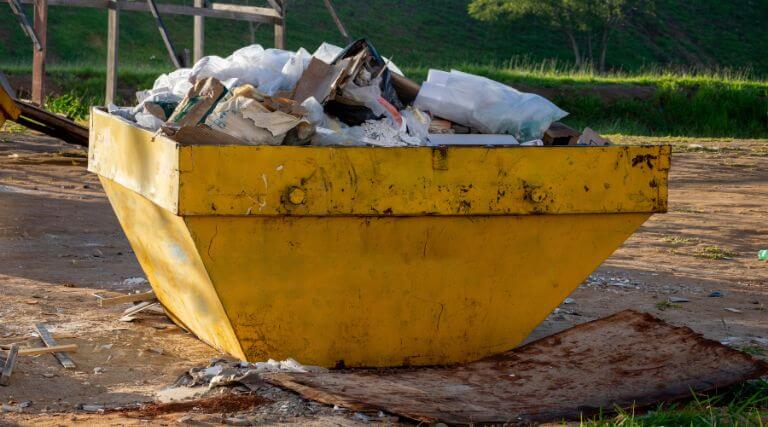
Skip hire is an excellent solution for managing waste efficiently, whether you’re renovating your home, clearing out your garden, or undertaking a large construction project. However, it’s just as important to know what not to do when hiring and using a skip as it is to understand the right steps. Missteps can lead to extra costs, legal issues, or even environmental damage.
This comprehensive guide will help you avoid common mistakes, ensuring your skip hire experience is smooth and hassle-free.
Don’t Overfill the Skip
What Happens When You Overfill?
Overfilling a skip might seem like a way to save money by cramming more waste into one container. However, this is a major mistake. Overfilled skips pose a safety hazard, as debris can fall out during transport. Additionally, skip hire companies are legally obligated to comply with weight and capacity limits. An overfilled skip may not be collected, leaving you with the inconvenience of repacking the waste or hiring another skip.
How to Avoid Overfilling
- Plan ahead and select the right skip size for your needs. If you’re unsure, it’s better to go one size up.
- Break down larger items to make more efficient use of the space.
- Avoid placing items above the skip’s rim.
Don’t Dispose of Prohibited Items
Know What’s Not Allowed
Not all waste can be disposed of in a skip. Items like batteries, electrical appliances, asbestos, tyres, and hazardous chemicals are typically prohibited due to health and safety regulations. Putting restricted items in your skip could lead to fines, environmental harm, or the need for additional waste removal services.
What to Do Instead
- Separate hazardous waste and arrange for specialised disposal services.
- Check with your skip hire provider for a list of prohibited items.
Don’t Place the Skip in an Inaccessible Location
Why Location Matters
Positioning your skip in the wrong place can create unnecessary headaches. For example, placing it on a public road without a permit can lead to fines, while inaccessible locations can delay collection or even make it impossible for the lorry to pick up the skip.
Tips for Proper Placement
- If the skip will be placed on a public road, obtain a permit from your local council.
- Ensure there is sufficient space for the lorry to deliver and collect the skip.
- Avoid placing the skip in areas prone to flooding or on uneven surfaces.
Don’t Burn Waste Inside the Skip
The Dangers of Burning Waste
It might seem like burning waste in the skip is a quick way to reduce its volume, but this is strictly prohibited. Burning waste can damage the skip, release toxic fumes, and potentially create a fire hazard.
What You Should Do
- Dispose of waste responsibly by filling the skip to capacity and arranging for it to be collected.
- Separate recyclable materials to minimise the volume of waste.
Don’t Underestimate the Need for a Permit
Permits Are Essential
If your skip needs to be placed on public land, such as a road or pavement, a permit is required. Hiring a skip without obtaining the necessary permissions can result in fines and delays.
Steps to Ensure Compliance
- Your skip hire company can usually arrange the permit for you, but it’s important to confirm this during booking.
- Plan for any additional time needed to secure the permit.
Don’t Ignore Environmental Responsibilities
Why Recycling Matters
Throwing everything into a skip without considering what can be recycled is wasteful and environmentally harmful. Many items, such as wood, metal, and plastics, can be repurposed.
How to Recycle Responsibly
- Separate recyclable materials before filling the skip.
- Inform your skip hire provider about the types of waste you’re disposing of, as some offer recycling options.
Don’t Delay Skip Collection
The Risks of Holding Onto the Skip
Leaving a skip on your property or a public road for too long can lead to additional costs, especially if the hire period exceeds the agreed timeframe. On public roads, you may also face fines if your permit expires.
Avoid Unnecessary Charges
- Schedule the skip collection as soon as you’ve finished filling it.
- Be clear about the duration of hire when booking the skip.
Don’t Forget to Consider the Weight Limit
Why Weight Limits Matter
Every skip has a weight limit that must be adhered to for safe transport. Overloading the skip with heavy materials, such as soil, rubble, or concrete, can exceed this limit and result in additional charges or collection refusal.
How to Stay Within the Limit
- Spread heavy items evenly throughout the skip.
- Use multiple skips for heavy materials if necessary.
Book Your Skip Today!
Avoiding these common mistakes ensures a stress-free skip hire experience. Whether you’re tackling a small garden project or managing construction site waste, we’re here to help. Contact us today on 01442 229 029 or Book Online to find the perfect skip for your needs.
By hiring from us, you’re choosing a reliable, environmentally conscious service that takes the hassle out of waste management.
about our business

Waste King is your go-to provider for all your rubbish clearance and skip hire needs.









